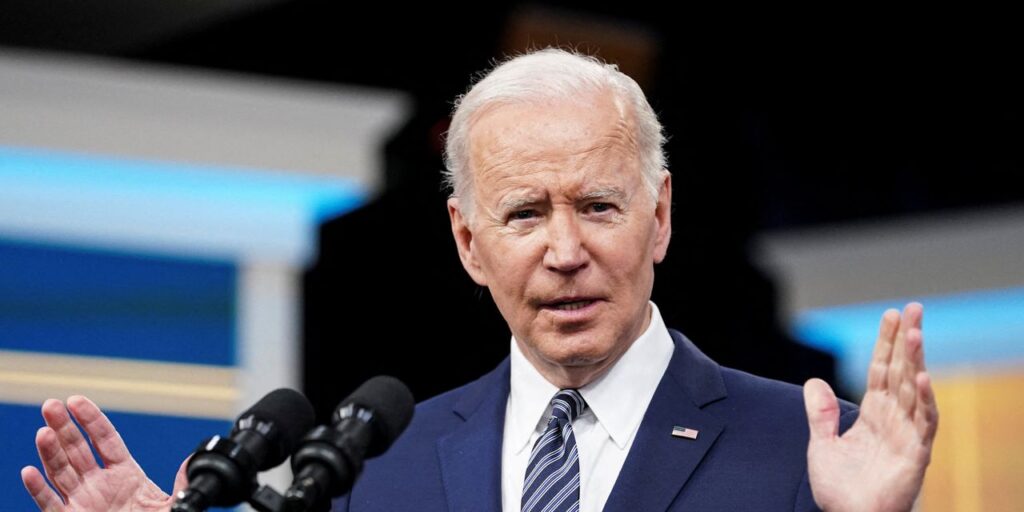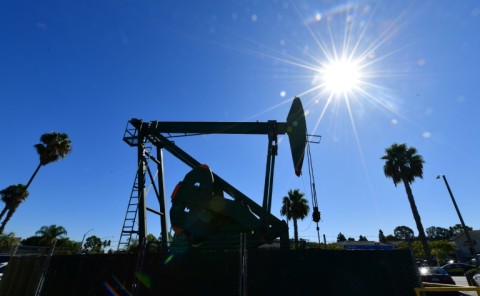Live
By Michael Kern – Jun 13, 2025, 7:58 AM CDT
Updated: Jun 13, 2025, 1:01 PM CDT
Israel conducted large-scale military strikes targeting Iran’s nuclear and military sites, causing a sharp increase in global oil prices.
Fears of disruptions to Middle East oil supplies and potential retaliatory actions from Iran led to market volatility and a drop in stock markets.
While the IAEA confirmed the impact on Iran’s Natanz facility, it also stated that radiation levels remained stable, and international calls for diplomacy increased.
End of live blog
Israel’s Strikes Hit Iranian Nuclear Sites, Yemen Missile Targets Israel Israel’s ongoing strikes on Iran targeted key nuclear and military infrastructure, with Iranian media reporting two explosions near the Fordo nuclear enrichment facility, buried deep underground near Qom.
The Isfahan nuclear facility, 350 kilometers southeast of Tehran, which employs thousands of scientists and hosts Chinese research reactors, was not directly hit, per IAEA reports.
Separately, Iran’s IRNA news agency reported an attack on a radar site near Tabriz, with 11 military sites in East Azerbaijan province struck, killing 18, including a Red Crescent worker, per official Majid Farshi.
In a related escalation, Israel detected a missile launch from Yemen, triggering sirens in Jerusalem, with a loud boom possibly from interceptor fire. The Iran-backed Houthi rebels have not claimed responsibility.
Oil prices edged higher, with Brent crude at $74.32 per barrel (+7.15%) and West Texas Intermediate at $72.96 (+7.23%), reflecting ongoing concerns over regional stability.
1m ago – 1:00pm CST
Iran Activates Air Defenses as Israel Launches Fresh Airstrikes Targeting Tehran Iranian state media reported that air defenses were activated across Iran as Israel launched fresh airstrikes targeting Tehran, with missiles intercepted south of the city and strikes hitting west Tehran and Karaj.
Israeli Ambassador to the U.S., Yechiel Leiter, told CNN that Israel is committed to ensuring Iran has no nuclear weapons program, stating that Iran “will not have a nuclear path to a nuclear bomb” and that Israel would continue its operations to achieve this.
Iraq’s Foreign Minister Fuad Hussein condemned the strikes, expressed solidarity with Iran, and urged Iran to pursue dialogue with the U.S. through Omani mediation to de-escalate tensions.
Iran and the U.S. had recently held nuclear talks in Rome in late May, with a sixth round scheduled in Oman on Sunday. Iraq also filed a complaint with the UN Security Council, asserting Iran’s right to respond to defend its sovereignty.
IAEA Director General Rafael Grossi confirmed that Iran’s Natanz enrichment facility was hit but reported no increase in radiation levels outside, with manageable alpha particle contamination inside.
1h ago – 11:47am CST
UN Conference Postponed, West Bank Sealed Amid Israel-Iran Conflict Israel’s strikes on Iran’s nuclear facilities have led to the postponement of a UN conference co-hosted by France and Saudi Arabia, aimed at advancing a two-state solution for Israel and Palestine.
Set for June 17-20 in New York, the conference was delayed due to the attacks and the inability of some Middle Eastern delegations to attend, according to sources in Riyadh and a Western diplomat. The escalation has also prompted Israel to close all checkpoints to the occupied West Bank, trapping 3 million Palestinians and cutting off access to jobs in Israel, exacerbating economic hardship.
Israel’s military began deploying reservists across “all combat arenas” to prepare for potential Iranian retaliation or attacks from proxy groups.
U.S. President Donald Trump, in a Reuters interview, said he was unconcerned about a wider regional war, claiming the U.S. “knew everything” about Israel’s strikes and that he tried to “save Iran humiliation and death.”
Trump noted a planned U.S.-Iran meeting on Sunday but expressed uncertainty about its occurrence.
2h ago – 10:46am CST
Iran Vows Decisive Response, Seeks UN Condemnation of Israel’s Strikes Iran’s Foreign Minister Abbas Araghchi, in a letter to the UN Security Council on June 13, 2025, condemned Israel’s strikes on its nuclear facilities as a “brazen and unlawful act” of “reckless aggression.”
Calling for an urgent council meeting, Araghchi urged the body to “strongly condemn” Israel and hold it accountable for violating the UN Charter and international law. He accused Israel of crossing “every red line” and warned that Iran would respond “decisively and proportionately” to protect its sovereignty and security.
The escalation, following Israel’s attacks targeting Iranian military and nuclear sites, has heightened global tensions. Oil prices remained elevated.
3h ago – 10:24am CST
Experts Warn of Imminent Iranian Retaliation After Israel’s Strike Iran experts warn that Tehran’s initial paralysis following Israel’s massive June 13, 2025, strikes on its nuclear facilities will likely give way to imminent retaliation.
Sina Toossi, senior fellow at the Center for International Policy, told CNN that Iran’s leadership is reeling but predicted a “large-scale retaliation” involving drone and missile strikes on Israeli territory. He cautioned that Israel’s actions risk fueling Iranian nationalism, strengthening internal cohesion, and sparking a dangerous cycle of escalation, potentially entangling the U.S.
Trita Parsi, executive vice president of the Quincy Institute, told CNN that Iran is unlikely to forgo retaliation, with a response expected to surpass its October 2024 missile attacks on Israeli military sites.
Parsi noted Israel’s strikes challenge norms of international law, likening the situation to a “law of the jungle.”
The recovery timeline for Iran’s nuclear capabilities remains unclear.
Oil prices reflected the tension, with Brent crude sitting at $73.13 and WTI at $71.72, up slightly from earlier trading.
3h ago – 10:14am CST
China Urges De-escalation, Offers Mediation After Israel’s Strikes on Iran China’s Foreign Ministry spokesperson Lin Jian expressed deep concern over Israel’s strikes on Iran’s nuclear facilities, urging all parties to avoid actions that escalate tensions or expand the conflict.
“China opposes any infringement on Iran’s sovereignty, security, and territorial integrity,” Jian stated, emphasizing the risk of “serious consequences.”
Beijing offered to play a “constructive role” in de-escalating the situation, leveraging its diplomatic influence in the region. In 2023, China successfully brokered a deal to restore diplomatic ties between Iran and Saudi Arabia, marking its growing role in Middle Eastern geopolitics.
3h ago – 9:59am CST
UK, France, and Germany Call for De-Escalation Amid Israel-Iran Conflict The leaders of Britain, France, and Germany urged all parties to avoid further escalation following Israel’s strikes on Iran’s nuclear facilities.
British Prime Minister Keir Starmer, after discussions with French President Emmanuel Macron and German Chancellor Friedrich Merz, emphasized concerns over Iran’s nuclear program and the need to prevent regional destabilization.
Macron also spoke directly with Israeli Prime Minister Benjamin Netanyahu, though details were not disclosed.
Iraqi Prime Minister Mohammad Shia al-Sudani condemned Israel’s attacks as a “flagrant violation of international law” during a meeting with U.S. officials, criticizing Israel’s use of Iraqi airspace.
U.S. representatives reiterated Washington’s non-involvement and commitment to keeping Iraq out of the conflict.
Iran’s Foreign Minister Abbas Araghchi requested a UN Security Council meeting, accusing Israel of crossing “every red line” and asserting Iran’s right to self-defense under Article 51 of the UN Charter.
3h ago – 9:47am CST
Egypt Faces Gas Crisis As Israel Halts Leviathan Field Production Israel’s order to shut down its massive Leviathan gas field on amid escalating conflict with Iran, has halted a critical supply line to Egypt, exacerbating regional energy strains. Chevron, the field’s operator, confirmed the closure following Israel’s Energy Ministry citing security threats after strikes on Iranian nuclear sites. Energean Plc also suspended its Israeli assets. The shutdown has disrupted gas flows to Egypt, which relies on Leviathan’s 981 million cubic feet per day to meet peak summer demand and fuel its LNG export ambitions. European gas prices surged 6.6% on the news, reflecting a tightening global market.
Egypt now faces potential emergency LNG purchases, straining its grid and export capacity. Jordan’s gas supply is also at risk. While Chevron’s Tamar and Energean’s Karish fields continue to serve Israel’s domestic needs, prolonged disruptions could destabilize the region’s energy balance.
4h ago – 9:31am CST
Oil Stocks Lag Behind Crude Surge After Israel-Iran Escalation Israel launched a new phase in its conflict with Iran on June 13, 2025, striking nuclear facilities and targeting military personnel, driving oil prices higher.
Despite the oil price surge, major oil companies’ stocks have not kept pace, showing only modest gains.
Chevron (CVX): +0.53% ($145.787) Shell (SHEL): +0.55% ($71.789) TotalEnergies (TTE): +0.36% ($63.367) Eni (E): +0.28% ($32.35) ExxonMobil (XOM): +1.64% ($111.66) BP (BP): +1.78% ($31.446) ConocoPhillips (COP): +2.36% ($96.858) Occidental Petroleum (OXY): +2.97% ($46.05) Equinor (EQNR) stood out, climbing +4.11% to $27.504, reflecting stronger investor confidence in its performance amid the geopolitical tensions.
4h ago – 9:23am CST
Turkey and Saudi Arabia Condemn Israel’s Strikes on Iran Turkey’s President Recep Erdogan and Saudi Arabia sharply criticized Israel’s overnight airstrikes on Iran’s nuclear and missile facilities.
Erdogan labeled Israeli Prime Minister Benjamin Netanyahu’s actions as “reckless, aggressive, and lawless,” reflecting strained Turkey-Israel ties, worsened by Israel’s war on Gaza following the 2023 Hamas attack. Ankara, which severed diplomatic relations with Israel last November, has long distrusted Netanyahu’s policies, despite shared regional concerns over Syria’s ousted leader Bashar al-Assad.
?srail, Gazze ba?ta olmak üzere bölgemizi kana, gözya??na ve istikrars?zl??a bo?ma stratejisini bu sabah itibar?yla çok tehlikeli bir a?amaya ta??m??t?r.
?srail’in kom?umuz ?ran’a düzenledi?i sald?r?lar, uluslararas? hukuku hiçe sayan apaç?k bir provokasyondur.…
— Recep Tayyip Erdo?an (@RTErdogan) June 13, 2025 Saudi Arabia, a regional rival to Iran, also denounced the strikes, calling them a “blatant” violation of Iran’s sovereignty and international law. Riyadh’s condemnation underscores its historically tense relations with Israel, particularly over the Palestinian issue.
#Statement | The Kingdom of Saudi Arabia expresses its strong condemnation and denunciation of the blatant Israeli aggressions against the brotherly Islamic Republic of Iran, which undermine its sovereignty and security and constitute a clear violation of international laws and… pic.twitter.com/OYuWXwiE5y
— Foreign Ministry ???????? (@KSAmofaEN) June 13, 2025 The escalating conflict has raised fears of disruptions to the Strait of Hormuz, a critical oil transit route.
4h ago – 9:03am CST
UK, Greece Issue Shipping Alerts as Israel-Iran Tensions Threaten Strait of Horm Following Israel’s coordinated airstrikes on Iran’s nuclear facilities, the UK and Greece have urged their merchant fleets to exercise heightened caution and log all voyages through the Strait of Hormuz, the world’s most critical oil transit chokepoint. The Greek Ministry of Shipping called for urgent reporting of Greek-owned vessels navigating the strait, citing escalating Middle East tensions, according to Reuters . The UK Maritime Trade Operations (UKMTO) advised avoiding the southern Red Sea and Gulf of Aden, warning of a “significant” risk of regional conflict. Vessels transiting the Arabian Gulf, Strait of Hormuz, and Northern Arabian Sea face elevated threats, with UKMTO urging robust security measures.
Iran’s vow of retaliation, including drone launches targeting Israel, has heightened fears of disruptions to the strait, through which over 20 million barrels of crude—about 20% of global daily consumption—pass daily.
4h ago – 8:49am CST
Trump Confirms U.S. Knew of Israel’s Iran Strike Plans U.S. President Donald Trump told the Wall Street Journal , that Washington was informed of Israel’s plans to launch large-scale strikes on Iran’s nuclear and military sites. Trump revealed he spoke with Israeli Prime Minister Benjamin Netanyahu on Thursday and planned another call Friday. U.S. officials, speaking anonymously, said Israel warned the Trump administration of the attacks and anticipated severe Iranian retaliation, prompting the U.S. to evacuate nonessential embassy staff and authorize voluntary departures for military dependents in the region.
The strikes, which targeted key Iranian facilities, drove oil prices higher , with Brent crude up 8.09% to $74.97 per barrel and West Texas Intermediate rising 8.79% to $74.02
Despite the escalation, U.S. special envoy Steve Witkoff plans to travel to Oman for nuclear talks with Tehran, though Iranian participation is uncertain. As tensions mount, markets brace for further volatility amid fears of Iran’s response.
4h ago – 8:44am CST
Markets Reel as Israel’s Strike on Iran Fuels Oil Surge, Safe-Haven Rally Israel’s large-scale military strikes on Iran’s military leaders, nuclear facilities and missile factories sent global markets into turmoil, with oil prices soaring and stocks plummeting.
Safe-haven assets rallied, with gold climbing to $3,416 per ounce, nearing its April high of $3,500.05, while the U.S. dollar index gained 0.8% to 98.50. The Swiss franc and Japanese yen saw fleeting strength before easing.
The Israeli shekel fell 1.7%, and regional bonds from Israel, Egypt, and Pakistan slipped.
U.S. stock futures dropped over 1%, European shares fell nearly 1%, and Asian markets, including Japan and South Korea, declined over 1%. U.S. 10-year Treasury yields rose to 4.38%, reflecting inflationary pressures from higher oil prices, despite an initial flight-to-safety push.
Charu Chanana, chief investment strategist at Saxo, noted the “geopolitical escalation adds uncertainty to fragile sentiment,” predicting sustained pressure on crude and safe-haven assets if tensions persist.
5h ago – 8:28am CST
Israel’s Precision Strikes Devastate Iran’s Nuclear Sites and Military Leadership Israel’s missile strikes on Iran demonstrated “precision” targeting, hitting private residences of key military leaders and inflicting “a tremendous amount of damage” to Iran’s nuclear program, according to Fabian Hinz, a defense expert at the International Institute for Strategic Studies in London. The attacks underscored Israel’s intelligence and military capabilities, severely hampering Iran’s nuclear ambitions.
Via APnews.com
Hinz outlined two potential Iranian responses: leveraging Hezbollah or launching air attacks. However, he noted both options are constrained. Hezbollah, Iran’s key regional ally, “is no longer in a position” to act as a forward deterrent due to repeated Israeli strikes that have weakened its operational capacity. Additionally, Iran’s missile effectiveness is questionable, as most were intercepted during attacks on Israel in 2024, Hinz said.
Oil prices have remained volatile, with West Texas Intermediate up 8.64% to $73.92 per barrel and Brent crude rising 7.96% to $74.88, driven by fears of potential Middle East supply disruptions and the potential for escalation.
5h ago – 8:15am CST
Middle East Tensions Drive Market Turmoil Israel’s missile strikes on Iran triggered significant market disruptions across the Middle East, with the Israeli shekel dropping 1.5% against the dollar after an intraday plunge of up to 3.5%. The currency is poised for its largest weekly decline since July 2024, reflecting heightened geopolitical uncertainty. Longer-dated Israeli government bonds fell alongside regional bonds from Egypt and Jordan, while the cost of insuring debt against default via credit default swaps climbed further. Equity markets also took a hit, with Dubai’s main index closing 1.9% lower and Abu Dhabi’s index down 1.3%, though it recovered from steeper intraday losses.
Oil prices surged , with Brent crude rising 7.86% to $74.81 per barrel and West Texas Intermediate up 8.42% to $73.77, marking the highest levels in nearly five months. The spike, driven by fears of potential disruptions to Middle East oil supplies, reflects concerns over Iran’s response and the stability of key shipping routes like the Strait of Hormuz. As tensions escalate, global investors remain on edge, with markets bracing for further volatility pending Iran’s next moves.
5h ago – 8:06am CST
A New Era in Israel-Iran Relations In case you are just joining us, and wondering why oil prices have soared back above $70 – here’s a breakdown of what you’ve missed:
What Happened:
Massive Overnight Strikes: At approximately 3:30am local time, explosions shook Tehran, with smoke rising from the Revolutionary Guards’ command HQ. Around 4:15am, Iran’s Natanz nuclear site — one of its most critical facilities — was hit, with footage showing thick black smoke.
Targeted Killings: Iranian state media confirmed the deaths of top commanders, including Revolutionary Guards leader Major General Hossein Salami and Armed Forces Chief of Staff Mohammad Bagheri. Also killed were nuclear figures Mohammad Mehdi Tehranchi and Fereydoon Abbasi.
Israeli Objectives: PM Netanyahu stated the mission targeted Iran’s nuclear enrichment infrastructure, ballistic missile systems, and top nuclear scientists. An IDF spokesperson claimed a multistorey underground enrichment hall at Natanz was damaged, and that dozens of strikes were conducted, possibly continuing for two weeks.
Mossad Involvement: Israeli operatives reportedly smuggled in explosive drones and precision weapons, destroying surface-to-air missile batteries and launchers.
Air Defense Clashes: Iran launched ~100 drones at Israel in retaliation, according to Israeli claims, though Tehran has not confirmed a counterattack.
Geopolitical Fallout:
Trump Comments: Former U.S. President Donald Trump claimed Iran ignored a 60-day ultimatum to strike a nuclear deal, warning that further U.S.-backed strikes would be “even more brutal.” He emphasized Israel’s access to lethal American weaponry.
U.S. Position: Secretary of State Marco Rubio denied U.S. involvement, stressing that America’s priority is protecting its troops. However, Iran blamed the U.S. for enabling the assault.
Regional Reaction: Saudi Arabia, Oman, and Turkey condemned the strikes as violations of international law.
Oil & Markets: Brent crude spiked 12.5% before stabilizing at +9%, trading around $74.45. Global stocks dipped, with S&P 500 futures down 1.2%.
Wider Context:
The strike follows nearly two years of intensifying conflict, beginning with the 2023 Israel-Hamas war.
Iran has been enriching uranium close to weapons-grade levels. The IAEA censured Iran this week for breaching non-proliferation obligations — its first such action in 20 years.
Nuclear negotiations between the U.S. and Iran were scheduled to resume Sunday, but Iran has said it will no longer negotiate with the U.S.
5h ago – 8:02am CST
Trump Endorses Israel’s Strikes on Iran, Signals More to Come U.S. President Donald Trump hailed Israel’s large-scale military strikes on Iran’s nuclear and military sites as “excellent” in an ABC News interview, escalating fears of a broader Middle East conflict. “They got hit hard, very hard,” Trump said, adding, “There’s more to come, a lot more.” The strikes, which targeted facilities like Natanz, drove Brent crude prices up nearly 7% to $75 per barrel . Concerns over potential disruptions to the Strait of Hormuz, a vital oil chokepoint, fueled market volatility, though no immediate supply interruptions were reported.
In a Truth Social post, Trump referenced a 60-day ultimatum he issued to Iran two months prior, stating, “Today is day 61. They should have done it!” He hinted at a possible “second chance” for Iran but offered no details. Iran vowed a “painful” response, raising fears of retaliation.
Global markets faltered as investors sought safe-haven assets, reflecting uncertainty over the region’s stability. The International Atomic Energy Agency reported no radiation leaks, but the escalating rhetoric and potential for further strikes continue to rattle energy markets and heighten geopolitical tensions.
5h ago – 8:02am CST
Oil Prices Jump 7% As Israel Launches Military Strikes Against Iran Last night, Israel launched large-scale military strikes targeting Iran’s nuclear facilities and military sites, escalating tensions in the Middle East and sending global oil prices soaring. Brent crude has surged by 7%, reaching close to $75 per barrel, while some reports noted intraday spikes as high as 13%, marking the largest single-day jump since March 2022. The attacks, described by Israel as a “preemptive strike” to curb Iran’s nuclear ambitions, raised concerns about potential disruptions to Middle East oil supplies, which account for roughly a third of global production.
Iran, a major oil producer, exports most of its crude to China, and fears of retaliatory actions, including possible interference with the Strait of Hormuz—a critical chokepoint for oil shipments—drove market volatility. Although no immediate disruptions to oil flows were reported, analysts warned that further escalation could threaten regional energy infrastructure. Stock markets globally tumbled as investors fled to safe-haven assets like gold and the U.S. dollar, reflecting heightened geopolitical uncertainty.
The International Atomic Energy Agency confirmed that Iran’s Natanz nuclear facility was impacted, though radiation levels remained stable. Iran vowed a “painful” response, while U.S. officials, including President Donald Trump, distanced Washington from the strikes, urging a diplomatic resolution. As markets brace for Iran’s next move, the oil price spike underscores the fragility of global energy markets amid rising Middle East tensions.
5h ago – 7:59am CST
Download The Free Oilprice App Today
Back to homepage
https://oilprice.com/Energy/Crude-Oil/LIVE-Oil-Prices-Surge-As-Israel-Iran-Conflict-Heats-Up.html




